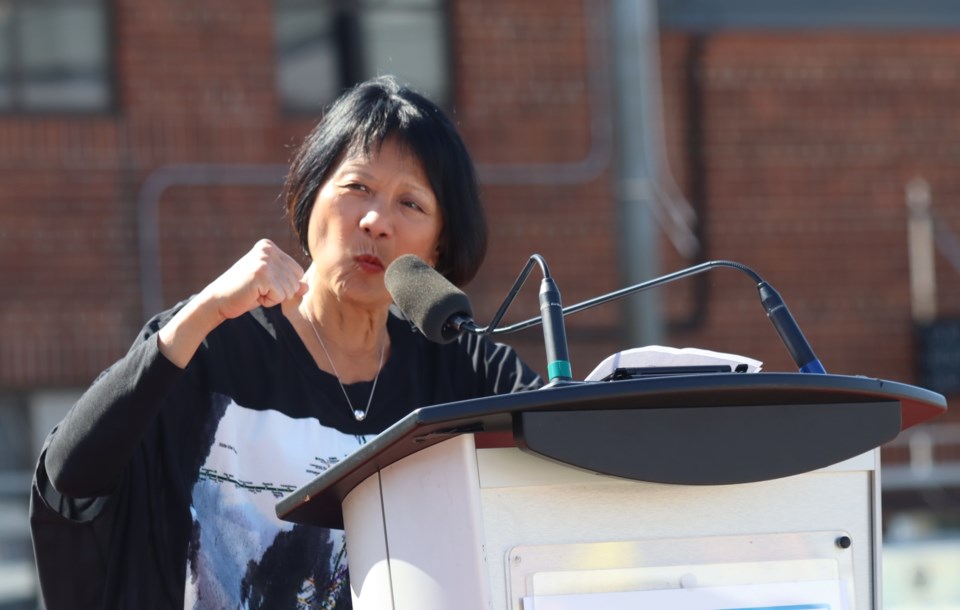Mayor Olivia Chow is reaffirming her commitment to keeping Toronto’s transit system moving, even as the TTC faces a projected $232-million shortfall for 2026 — more than $100 million higher than last year’s forecast.
Chow, who made transit improvements a centrepiece of her 2023 mayoral campaign, told reporters that expanding TTC service remains a priority despite the widening deficit.
“Are there ways they can streamline the operation? Can they cut some of the costs without damaging the service? That’s number one: more efficiency,” Chow said, signalling her expectation that the TTC find internal savings before new revenue measures are considered.
The city has already committed to boosting the TTC’s operating subsidy by $91 million, bringing total support to nearly $1.5 billion. Officials have identified $17 million in potential efficiencies, but Chow warned that more work is needed to close the gap without cutting service.
Exploring Revenue Options
With service cuts off the table, Toronto faces limited options: raising property taxes, introducing new levies, banking on a surge in ridership, or securing further support from provincial and federal governments.
The TTC board recently floated a new rideshare trip levy modeled after programs in U.S. cities. A $2.75 fee on trips citywide could generate roughly $200 million annually.
Councillor Josh Matlow (Toronto–St. Paul’s) renewed calls for a commercial parking lot tax, estimated to raise $100 million per year — a measure previously shelved by council.
“That is such a clear way to bring in money that can go directly toward improving our TTC,” Matlow said.
Ridership Growth as a Key Solution
Fare revenue could rise by $40 million by the end of 2025 as major employers push for a return to the office and if the long-delayed Eglinton Crosstown LRT finally opens. Chow said improved reliability and service expansions should continue to attract riders.
“We are counting on more riders coming in because I believe that as we increase service, as we make the TTC even more reliable, people are saying that is the better way,” Chow added.
Appealing for Provincial and Federal Support
Chow emphasized that long-term funding solutions require partnership from Queen’s Park and Ottawa. Under a “new deal” reached with Premier Doug Ford earlier this year, the province provided hundreds of millions in temporary operating support and agreed to take over the Gardiner Expressway and Don Valley Parkway.
“Toronto is the biggest city in Canada. We are the economic engine of Canada,” said Chow. “At this time, when we are under attack by the tariffs by President Trump, we need to invest. If the city can’t move because the TTC is not getting the kind of investment it needs, then it’s a problem.”

